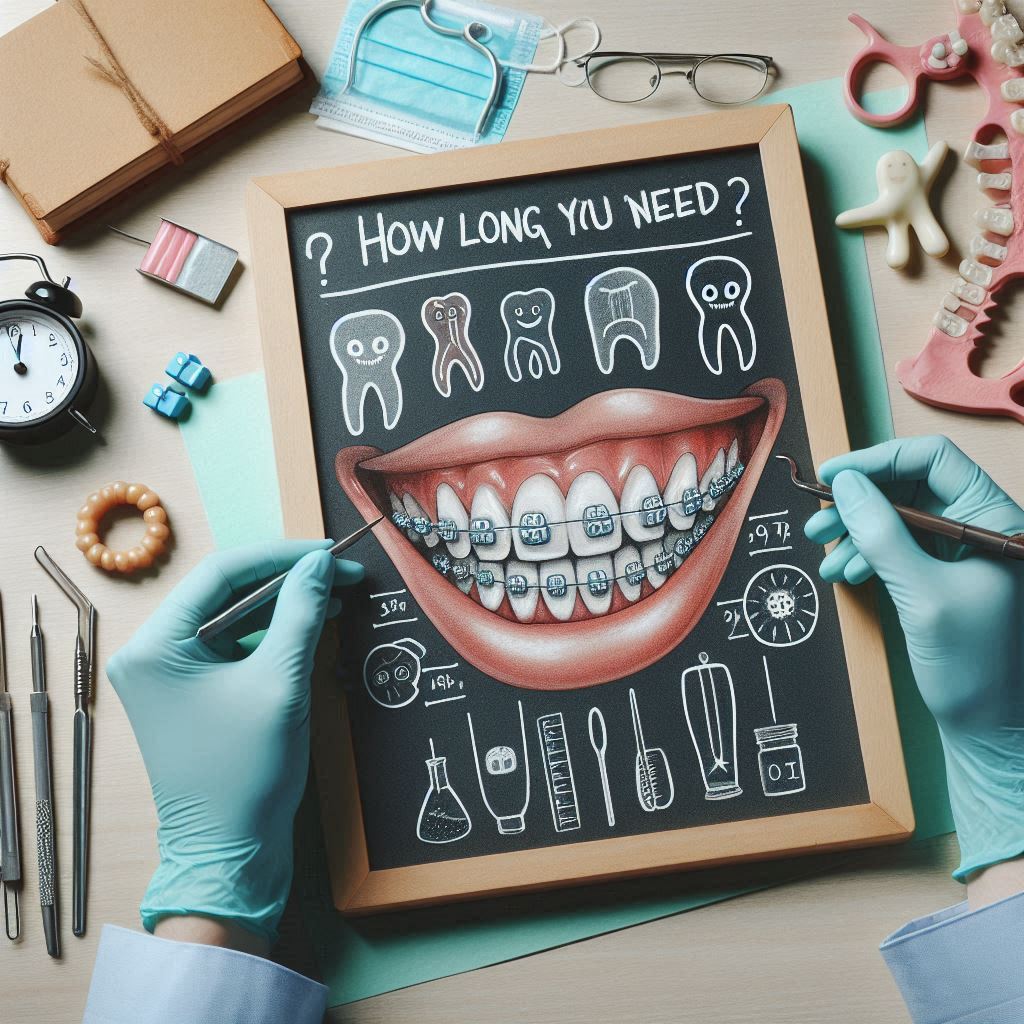Oral health is not just about brushing your teeth; it’s about maintaining the balance of bacteria, preventing disease, and ensuring your teeth, gums, and soft tissues are healthy. However, when you have digestive issues, your mouth can become vulnerable to several challenges. Digestive disorders can affect your saliva production, increase your risk of tooth decay, and exacerbate gum problems. In some cases, they may even lead to specific oral conditions that require special care.
This guide aims to provide you with a thorough understanding of the relationship between oral health and digestive issues, explaining how digestive conditions can affect your mouth, and offering practical steps for managing both. By the end, you will have a better understanding of what you can do to protect your oral health while managing your digestive condition.
Understanding the Oral-Health Digestive Connection
Your digestive system and your oral health are more connected than you might think. The mouth is the first part of the digestive system, where food enters and begins to break down. This means that oral health has a direct impact on digestion, and vice versa. Digestion involves both mechanical and chemical breakdown of food, and the mouth plays a role in preparing food for digestion through chewing and the secretion of saliva, which contains enzymes.
However, when the digestive system isn’t functioning properly, these processes can become disrupted, impacting oral health. Similarly, poor oral health can interfere with your ability to properly digest food, creating a cycle of dysfunction.
The Mouth as the Gateway to the Digestive System
The digestive process begins the moment food enters the mouth. Saliva helps in the breakdown of food, aiding both in the mechanical process of mastication (chewing) and in the enzymatic breakdown of starches through amylase. Saliva also helps neutralize harmful acids that might otherwise contribute to tooth decay. When digestive problems arise, this process can be altered, leading to both oral and digestive issues.
The health of your oral microbiome—where trillions of bacteria reside in your mouth—also plays a critical role in maintaining the balance in your gut. Disruptions in the oral microbiome due to issues like tooth decay, gingivitis, or gum disease can have ripple effects throughout the digestive system. Emerging research suggests that poor oral health may increase the risk of gastrointestinal issues, and gut dysbiosis (imbalance of gut bacteria) may impact the health of your gums and teeth.
Thus, maintaining good oral hygiene and managing digestive disorders are equally important for your overall health.
How Digestive Issues Can Affect Oral Health
Different digestive conditions manifest in various ways, and each can have specific implications for your oral health. Let’s break down the impact of some common digestive disorders on the mouth.
Acid Reflux and GERD (Gastroesophageal Reflux Disease)
Acid reflux is a condition where stomach acids flow backward into the esophagus, and in severe cases, it can make its way into the mouth. This is known as gastroesophageal reflux disease (GERD).
- Impact on Oral Health:
- Enamel Erosion: Stomach acid is highly corrosive and can erode the protective enamel on your teeth. Enamel loss exposes the underlying dentin, leading to increased sensitivity to hot and cold foods, and making the teeth more prone to cavities.
- Increased Cavities and Tooth Decay: Enamel erosion from acid reflux can lead to weakened teeth. Over time, this can cause cavities and other forms of tooth decay, particularly along the gum line where the enamel is thinnest.
- Bad Breath: GERD can also cause chronic bad breath (halitosis) because of the stomach acid and food particles that may remain in the mouth after reflux episodes. This condition is worsened by dry mouth, another common issue for people with GERD.
- Preventive Measures:
- Consider using fluoride toothpaste to help rebuild and protect your enamel.
- Rinse your mouth with water after experiencing acid reflux to help neutralize the acid.
- Avoid acidic foods and drinks that can exacerbate reflux symptoms and contribute to enamel erosion.
Dry Mouth (Xerostomia)
Dry mouth occurs when your body produces insufficient saliva. This can happen due to various reasons, including medications used to treat digestive issues, dehydration, and underlying health conditions. Dry mouth is particularly common in people with conditions like IBS, IBD (inflammatory bowel disease), and those who are taking proton pump inhibitors or antacids for GERD.
- Impact on Oral Health:
- Increased Risk of Cavities: Saliva is crucial for neutralizing acids in the mouth and for washing away food particles and bacteria. When saliva production is reduced, plaque and bacteria can accumulate more easily, leading to tooth decay.
- Gum Disease: Without adequate saliva, your gums are also at greater risk of infection. Saliva helps to keep the gums moist and prevent the build-up of harmful bacteria. When dry mouth occurs, gum inflammation (gingivitis) and periodontal disease can develop more easily.
- Mouth Sores and Infections: A dry mouth increases the likelihood of fungal infections, like thrush (oral candidiasis), due to the reduction in beneficial bacteria that normally help keep the mouth in balance.
- Preventive Measures:
- Use saliva substitutes or mouth rinses designed for dry mouth.
- Drink water frequently to stay hydrated, and avoid caffeinated beverages which can dehydrate you.
- Chew sugar-free gum or suck on sugar-free lozenges to stimulate saliva production.
Nausea and Vomiting
Conditions like gastritis, peptic ulcers, and cyclic vomiting syndrome can cause frequent vomiting, which brings stomach acids into the mouth. These acids are highly damaging to tooth enamel and, over time, can lead to significant oral health issues.
- Impact on Oral Health:
- Enamel Erosion: Repeated exposure to stomach acid causes enamel to erode, resulting in tooth sensitivity, weakened teeth, and an increased risk of cavities.
- Tooth Sensitivity: With enamel erosion, the underlying dentin becomes exposed, leading to tooth sensitivity. This can make consuming hot, cold, or sweet foods uncomfortable.
- Acidic Taste and Bad Breath: Vomiting leads to a sour or acidic taste in the mouth, and may also cause bad breath.
- Preventive Measures:
- Rinse your mouth with water immediately after vomiting to dilute the acid.
- Wait at least 30 minutes before brushing your teeth to avoid damaging enamel that has been softened by stomach acid.
- Consider using toothpaste designed for sensitive teeth to help manage tooth discomfort.
Inflammatory Bowel Disease (IBD)
Crohn’s disease and ulcerative colitis are two types of IBD that can lead to chronic inflammation in the gastrointestinal tract. While these conditions affect the digestive system, they also have a significant impact on oral health, often due to medications, nutritional deficiencies, and systemic inflammation.
- Impact on Oral Health:
- Mouth Sores (Aphthous Ulcers): IBD can cause painful mouth sores, which can interfere with eating and swallowing. These sores may be more common in people with Crohn’s disease, and can cause significant discomfort.
- Delayed Tooth Development: Nutritional deficiencies, especially in children with IBD, can lead to delayed tooth eruption and abnormal tooth development due to insufficient intake of essential vitamins and minerals.
- Dry Mouth: Some medications for IBD, such as corticosteroids, can lead to dry mouth, increasing the risk of cavities and gum disease.
- Preventive Measures:
- Ensure you’re getting enough vitamins and minerals by following a balanced diet or considering supplementation if recommended by your healthcare provider.
- If mouth sores are present, consider using topical treatments or saltwater rinses to promote healing.
- Speak to your dentist about using fluoride treatments or special toothpaste to help protect your enamel.
Celiac Disease
Celiac disease is an autoimmune disorder where the ingestion of gluten causes damage to the small intestine. This damage can impair the absorption of nutrients, leading to deficiencies that affect oral health.
- Impact on Oral Health:
- Enamel Defects: One of the most noticeable oral health issues for people with celiac disease is enamel hypoplasia. This condition results in defective enamel formation, causing discolored, pitted, or brittle teeth.
- Delayed Tooth Eruption: In children with untreated celiac disease, permanent teeth may erupt later than usual, which can be stressful for both the child and the parents.
- Mouth Sores: People with celiac disease may develop painful mouth sores (aphthous ulcers) that can make eating and drinking difficult.
- Preventive Measures:
- A strict gluten-free diet is essential to managing celiac disease and preventing further damage to the small intestine.
- Be proactive in addressing vitamin and mineral deficiencies by working with a healthcare provider to ensure you are getting enough calcium, vitamin D, and other nutrients essential for oral health.
- Visit your dentist regularly to monitor any enamel defects and treat them early.
3. Managing Oral Health with Digestive Issues: Comprehensive Strategies
Now that we have explored how digestive issues can impact oral health, let’s delve into the strategies you can employ to mitigate these effects and maintain a healthy mouth despite these challenges.
Hydrate Frequently
Hydration is essential for maintaining healthy saliva production. If you’re experiencing dry mouth due to a digestive condition or medications, drinking water frequently throughout the day is crucial. Additionally, chewing sugar-free gum or using saliva substitutes can also stimulate saliva production.
Practice Excellent Oral Hygiene
Maintaining a consistent and thorough oral hygiene routine is vital when managing digestive issues. Brush your teeth at least twice a day with fluoride toothpaste and floss daily to remove plaque and food particles that can contribute to decay and gum disease.
Avoid Brushing Immediately After Acid Exposure
If you suffer from acid reflux or vomiting, it’s important not to brush your teeth immediately afterward. The stomach acids can soften your enamel, and brushing too soon can cause further damage. Instead, rinse with water or an alcohol-free mouthwash and wait at least 30 minutes before brushing.
Use a Soft Toothbrush and Fluoride Toothpaste
If you have acid reflux or have experienced vomiting due to a digestive disorder, it’s essential to take extra care when brushing your teeth. The acid from your stomach can soften your tooth enamel, and brushing too soon after vomiting can cause enamel erosion. Wait at least 30 minutes after vomiting before brushing your teeth. When you do brush, use a soft-bristled toothbrush to avoid irritating sensitive gums and enamel.
Additionally, using fluoride toothpaste can help strengthen tooth enamel, making it more resistant to acids and cavities.
Practice Good Oral Hygiene
Maintaining a good oral hygiene routine is more important than ever when managing digestive health problems. Brush your teeth at least twice a day for two minutes using fluoride toothpaste. Floss daily to remove plaque between your teeth and along the gum line, where bacteria can accumulate. Make sure to replace your toothbrush every three to four months or sooner if the bristles become frayed.
Additionally, if you suffer from dry mouth, consider using a mouthwash specifically designed for this condition. Some mouthwashes contain xylitol, a natural sugar alcohol that helps promote saliva flow.
Rinse with Water or an Antiseptic Mouthwash After Eating
After eating or drinking, especially if you have acid reflux or frequent vomiting, rinse your mouth with water to help wash away any residual acids. This simple habit can help neutralize acids in the mouth, preventing enamel erosion and tooth decay. You can also use an alcohol-free mouthwash with antiseptic properties to kill harmful bacteria and freshen your breath.
Monitor Your Diet
A balanced, nutrient-rich diet is crucial for both digestive and oral health. Foods high in calcium, vitamin D, and fiber promote strong teeth and gums, while acidic and sugary foods should be consumed in moderation to avoid exacerbating digestive symptoms and tooth decay.
- Limit Acidic Foods: Citrus fruits, tomatoes, and carbonated drinks can exacerbate acid reflux and may also wear away your tooth enamel. If you do consume these foods, try to rinse your mouth with water afterward.
- Avoid Sugary Foods: Sugar feeds the bacteria in your mouth, which can lead to plaque buildup and cavities. Choose healthier snacks like fruits, vegetables, or nuts. If you must have sugary treats, try to eat them with a meal to minimize their impact on your oral health.
- Increase Calcium-Rich Foods: Calcium is essential for maintaining strong teeth and bones. Include calcium-rich foods like dairy products, leafy greens, and fortified plant-based milk in your diet to support your oral health.
- Ensure Adequate Vitamin D: Vitamin D is necessary for the absorption of calcium. If you have digestive issues that affect nutrient absorption, consider discussing vitamin D supplementation with your healthcare provider.
- Avoid Spicy and Irritating Foods: If you suffer from conditions like ulcers or gastritis, certain foods like spicy, acidic, or fried items can aggravate your digestive system and also cause discomfort in your mouth. Stick to a bland, soothing diet to minimize irritation.
Regular Dental Visits
Schedule regular dental checkups to monitor your oral health. Your dentist will be able to identify any early signs of tooth decay, enamel erosion, or gum disease, and can provide treatment options to protect your mouth. Be sure to inform your dentist about any digestive issues or medications you are taking, as this will allow them to tailor their approach to your specific needs.
Conclusion
Managing oral health while living with digestive issues requires a holistic approach that includes maintaining proper hydration, practicing good oral hygiene, paying attention to your diet, and seeking regular dental check-ups. By understanding the link between digestive and oral health and adopting proactive habits, you can protect your teeth and gums from the effects of your digestive condition. Consulting with your healthcare providers, including both your dentist and gastroenterologist, is key to developing a tailored plan that addresses both your digestive and oral health needs. With the right strategies in place, you can maintain a healthy mouth and digestive system, improving your overall quality of life.
SOURCES
Moynihan, P. J. (2005). The role of diet in the prevention and management of dental diseases. International Dental Journal, 55(3), 155-161.
Fox, S. I. (2017). Human Physiology (14th ed.). McGraw-Hill Education.
Gessner, W. (2011). The interrelation of oral health and overall health. American Journal of Clinical Nutrition, 93(2), 233-238.
Scully, C., & Felton, D. A. (2013). Oral health in the elderly patient: An overview of issues, prevention, and management. Oral Surgery, Oral Medicine, Oral Pathology and Oral Radiology, 115(5), 465-469.
Dye, B. A., & Thornton-Evans, G. (2010). The relationship between clinical oral health and overall health: A review of the scientific evidence. Journal of the American Dental Association, 141(1), 3-11.
Michaud, D. S., & Giovannucci, E. (2006). Oral health and risk of colorectal cancer. Journal of Clinical Gastroenterology, 40(7), 577-583.
López, R., & Baelum, V. (2004). The role of diet in oral health and the prevention of oral diseases. Oral Diseases, 10(5), 245-257.
Patel, K., & Johnson, D. L. (2014). The effects of acid reflux on oral health: A review of the evidence. Journal of the American Dental Association, 145(10), 988-993.
Dolan, T. A., & Weitzman, S. M. (1997). The impact of chronic disease on oral health: A review of the literature. Dental Clinics of North America, 41(2), 339-350.
Sullivan, S. M., & Mandell, D. (2017). Impact of systemic disease on oral health and the dentist’s role in diagnosis. Canadian Journal of Dental Hygiene, 51(4), 233-239.
Harvard T.H. Chan School of Public Health. (2018). Oral health: The impact of diet and nutrition. Harvard T.H. Chan School of Public Health: The Nutrition Source. Retrieved from http://www.hsph.harvard.edu/nutritionsource/
Miller, W. D. (2014). The effects of gastrointestinal disorders on oral health. Journal of Gastrointestinal and Liver Diseases, 23(4), 373-380.
Zickgraf, H. I., & Hutson, B. P. (2009). The relationship between dry mouth and oral health problems. International Journal of Dentistry, 16(2), 71-74.
Singh, P., & Gupta, M. (2016). Oral manifestations of systemic diseases: A review. Indian Journal of Dentistry, 7(3), 171-177.
Sharma, R., & Bansal, M. (2017). Dietary factors and oral health: A literature review. Indian Journal of Public Health Research & Development, 8(1), 147-152.
Snyder, B., & Rojas, G. (2015). Salivary dysfunction in the aging population. Journal of Clinical Oral Health, 20(3), 112-118.
Kumar, A., & Agarwal, A. (2018). Gastrointestinal and oral health: Connections and interrelationship. Journal of Clinical and Experimental Gastroenterology, 11(4), 129-133.
HISTORY
Current Version
January 24, 2025
Written By:
SUMMIYAH MAHMOOD




